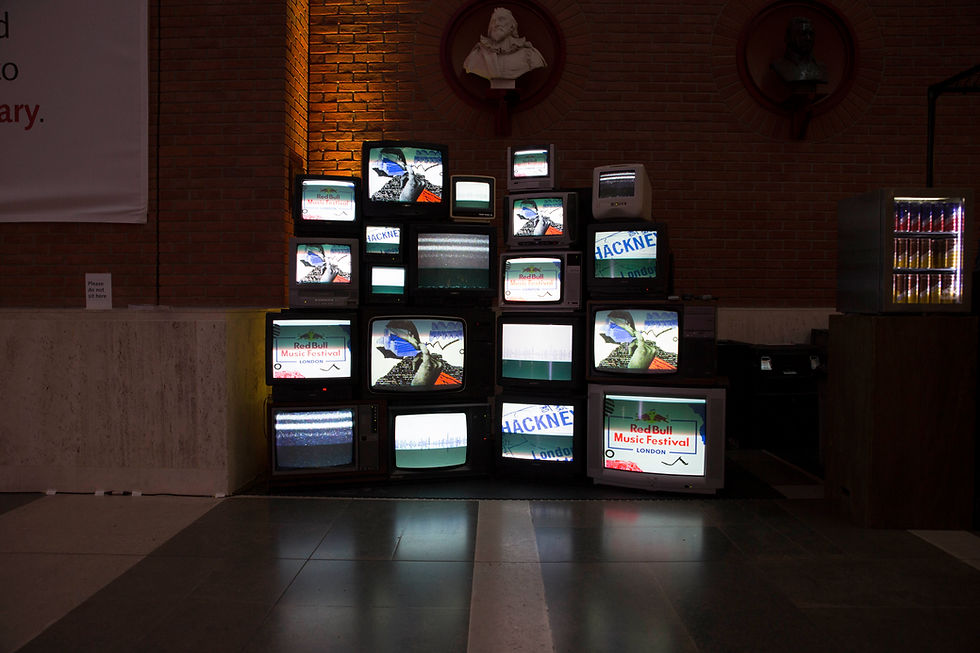Coded Language: How Dialect Intersects Music
- Ope Oduwole
- Sep 30, 2019
- 3 min read
Updated: Jan 7, 2022

It’s easy to forget London is a multicultural bubble. Big cities across the UK can be described as melting pots of all ethnicities and socioeconomic backgrounds. As the host for the night, Kieran Yates, boldly stated- the coming together of cultures is partly due to the social housing schemes from the late 50s onwards. As a result, densely populated areas became, what I like to call “seasoned”.
So, what has multiculturalism got to do with music? The answer is everything. In recent years people have run towards cultural identity rather than shying away from it, musicians included. Artists have embraced their heritage to the point where it is no longer seen as a hindrance and in turn, expressed through their work. We hear Yoruba, Twi, Arabic and other prominent languages in songs that top the charts and it needs to be properly acknowledged. That is why Coded Language as an event was crucially important.

Coded Language was held as part of Red Bull Music Festival in hopes to discuss how certain forms of speech (slang) has seeped into everyday life and consequently into the music we listen to. It was fitting and extremely apt that it was curated in the British Library, as talents like Wretch 32, AM (AM X Skengdo) and Bridget Minamore explored why Rap, Trap and Drill aren’t being archived in the same way other genres are. After little deliberation and jokes that held a lot of truth, it was clear that the artistry is being overlooked. AM was quick to speak about how violence isn’t the focus of Drill music but is the main takeaway from the mainstream audience. It was better explained when we spoke to Bridget about it, in more detail.
The night wasn't completely filled with scrutiny. There were copious amounts of positivity concerning how slang promotes the merging and amalgamation of worlds. Many words rooted in our coded speech derive from different languages, even if they may not be directly related to us. So, when you hear a Gambian artist like J Hus using Twi nouns like bonda and bonsam in Did You See, it doesn't come as a shock. If anything, it encourages his fans and avid listeners to take their curiosity a step further and research into the countries the languages origniate from. Another example that was brought up by Kieran and Steel Banglez (a track he also produced) was Mist's Karlas Back. Karla is a play on words from 'kaala' in Sanskrit, but borrowed by both Hindi and Tamil as everyday slang - referring to black people. It's reflective of Mist's upbringing in a predominantly Asian Community in Birmingham. These are facts I would have no idea about if I hadn't heard the song, and I'm sure it's the same for others that listen to Mist.
Recognising colloquialisms and idioms in pop-ular music is also important as part of the diaspora. Something that stood out was Wretch's story about when he referred to himself as British when someone asked where he was from at the age of 13. When he got home his mum scolded him and he went on to say to the audience,
"It's not about where you are, it's about where you come from."
The contrast between growing up African, Caribbean and Asian in the 90s, as opposed to now, is that there is more representation within the British music industry. Those in my generation came to the conclusion of dual identity at later stages in life, whereas young children are already aware that their individuality is not one-dimensional. And music has a significant role to play in that. With that being said, this so-called representation is a recent happening and is still not at proportionate levels: both in quantity and recognition. Whether Drill, Trap and Rap will reach the heights other genres have is another question, and frankly besides the point. Instead of fixating on clickbait headlines and the stigma surrounding these musical styles, we should continue to focus on the positive impact it already has in its infancy of success.
Coded Language was part of Red Bull Music Festival which runs until 14 September 2019. For tickets and event details, head to redbull.com/london.




Comments